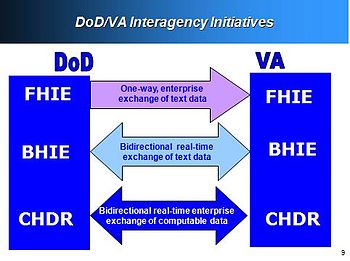New technology has been the catalyst for positive change in numerous industries. One that’s benefited immensely is the medical industry, because practitioners are better able to provide their patients with excellent care while increasing efficiency at the same time.
Electronic health records are an example of cutting-edge technology that’s being widely implemented. Here are some specific examples of how both physicians and patients can benefit.

English: Electronic Health Records flow chart.jpg (Photo credit: Wikipedia)
Real-time information
When treating a patient, it’s crucial that a doctor has access to up-to-date information that’s also highly accurate. Any missing or outdated information can hinder a doctor’s ability to diagnose and treat an ailment effectively.
Traditional paper files can be an issue because they sometimes lack key pieces of recent information. When this happens, that can reduce the odds of a quick recovery; at worst, it could be life-threatening.
Electronic health records are better because all information that’s input by one physician can immediately be viewed by any other physicians the patient visits. This ensures a higher degree of safety and reduces the likelihood of a medical error occurring.
Enhanced doctor-patient communication
Rather than communicating through phone calls as they did in the past, electronic health records allow doctors to send information to their patients electronically through email. Physicians can also send links to helpful online resources so patients can obtain information about after-care and learn more about their illness.
This enhanced patient participation can be beneficial for equipping patients with the knowledge to treat their ailment better so they can recover quicker.
Better overall efficiency
Another problem with traditional paper medical documents is that not everyone’s handwriting is perfectly legible. A hospital billing department might not be able to read the cost of a particular treatment accurately and bill a patient more or less than the actual total.
This can be highly problematic and lead to unnecessary complications that upset the flow of operations. By using the digital format of electronic health records, discrepancies should be significantly cut and different parties can stay on the same page.
Financial savings
Finally, a significant amount of money can be saved by storing information electronically. Just the costs of paper alone can really add up over the course of a year. Combine this with the cost of printing equipment, and doctors and hospitals can easily save thousands each year by using this type of technology.






